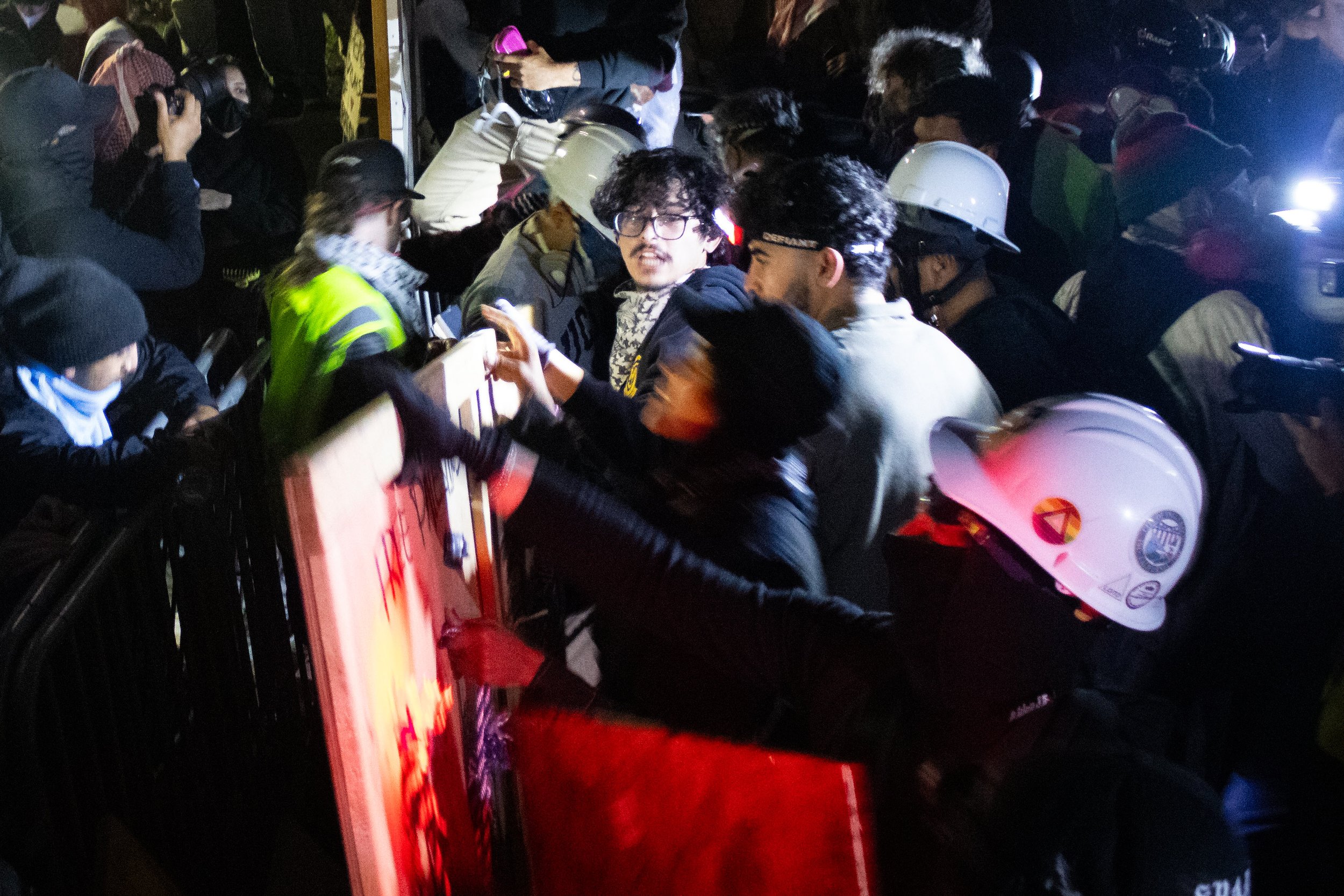Play’s Cancellation Ripples Through SMC Community
Cebelihle Hlatshwayo, Renée Bartlett-Webber, Samayia Kirby & Victor Chambers | Editors
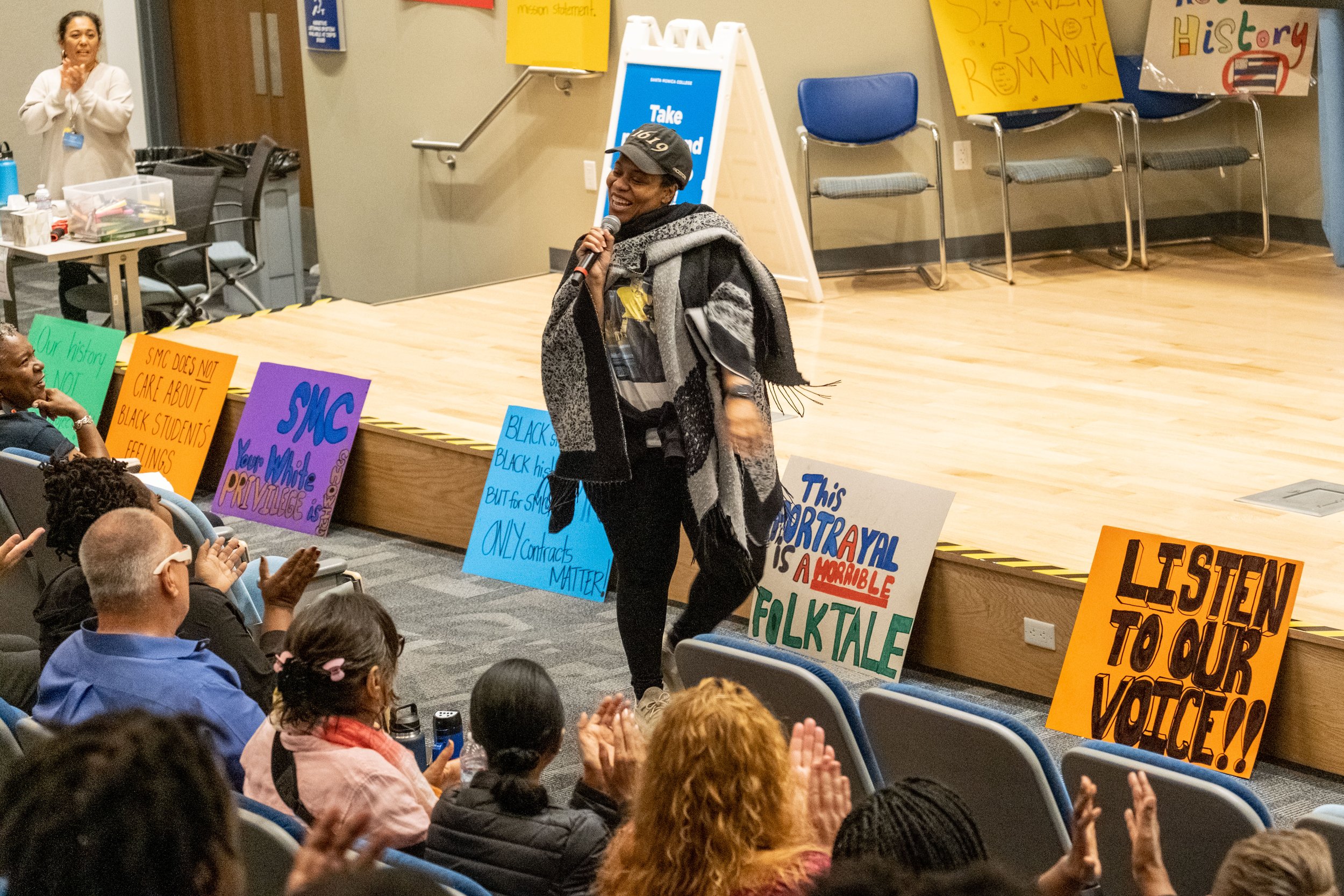
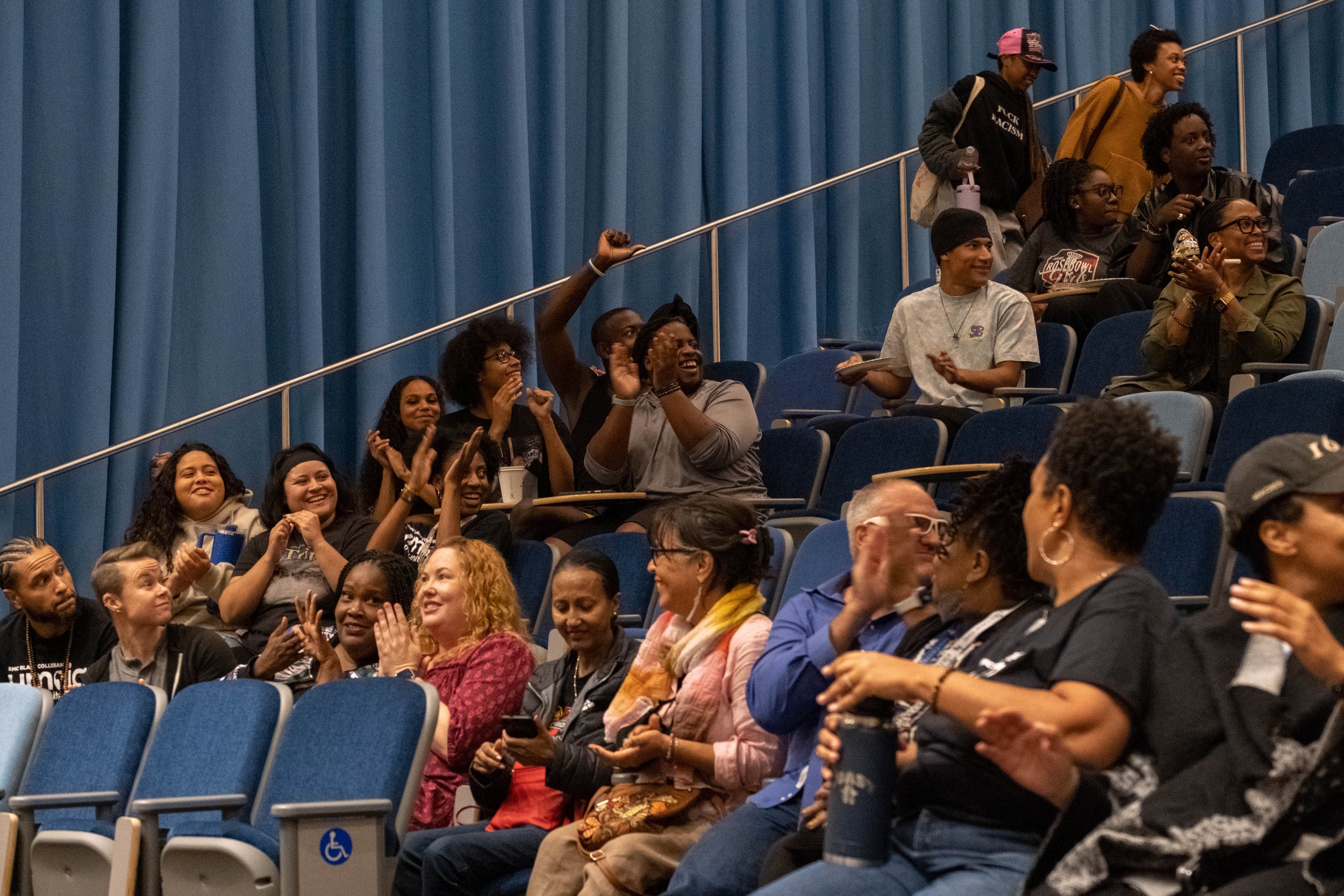
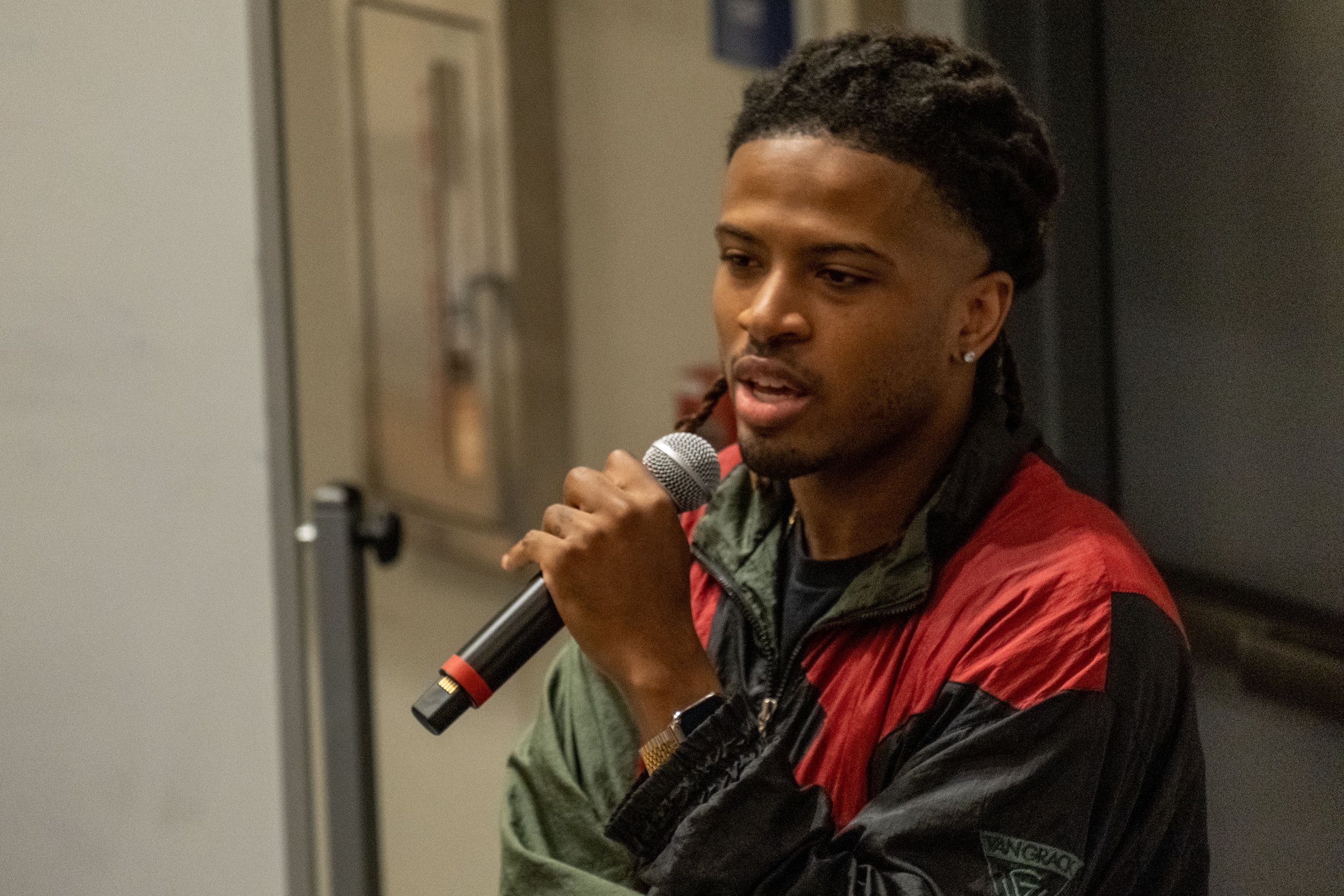
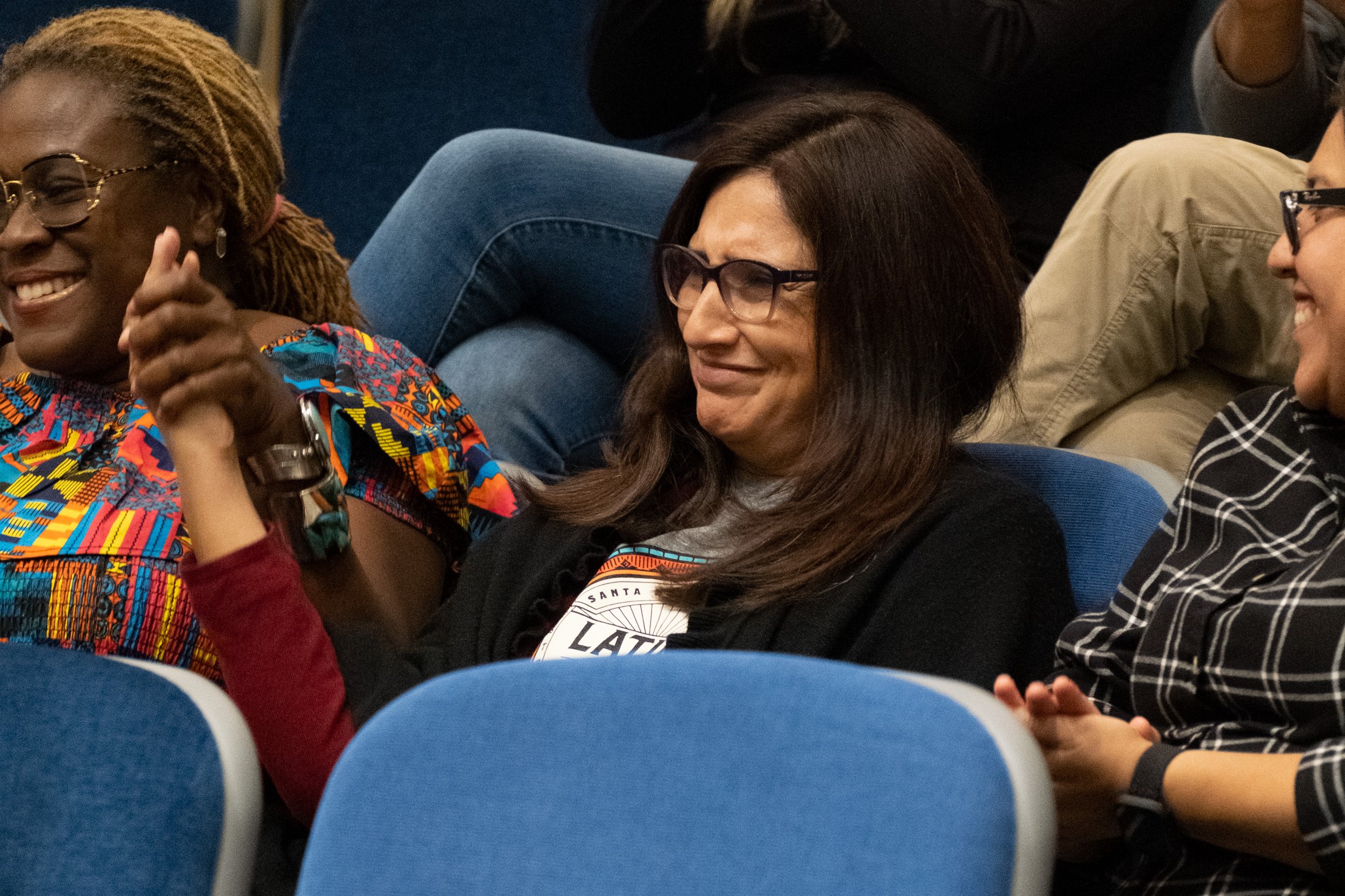
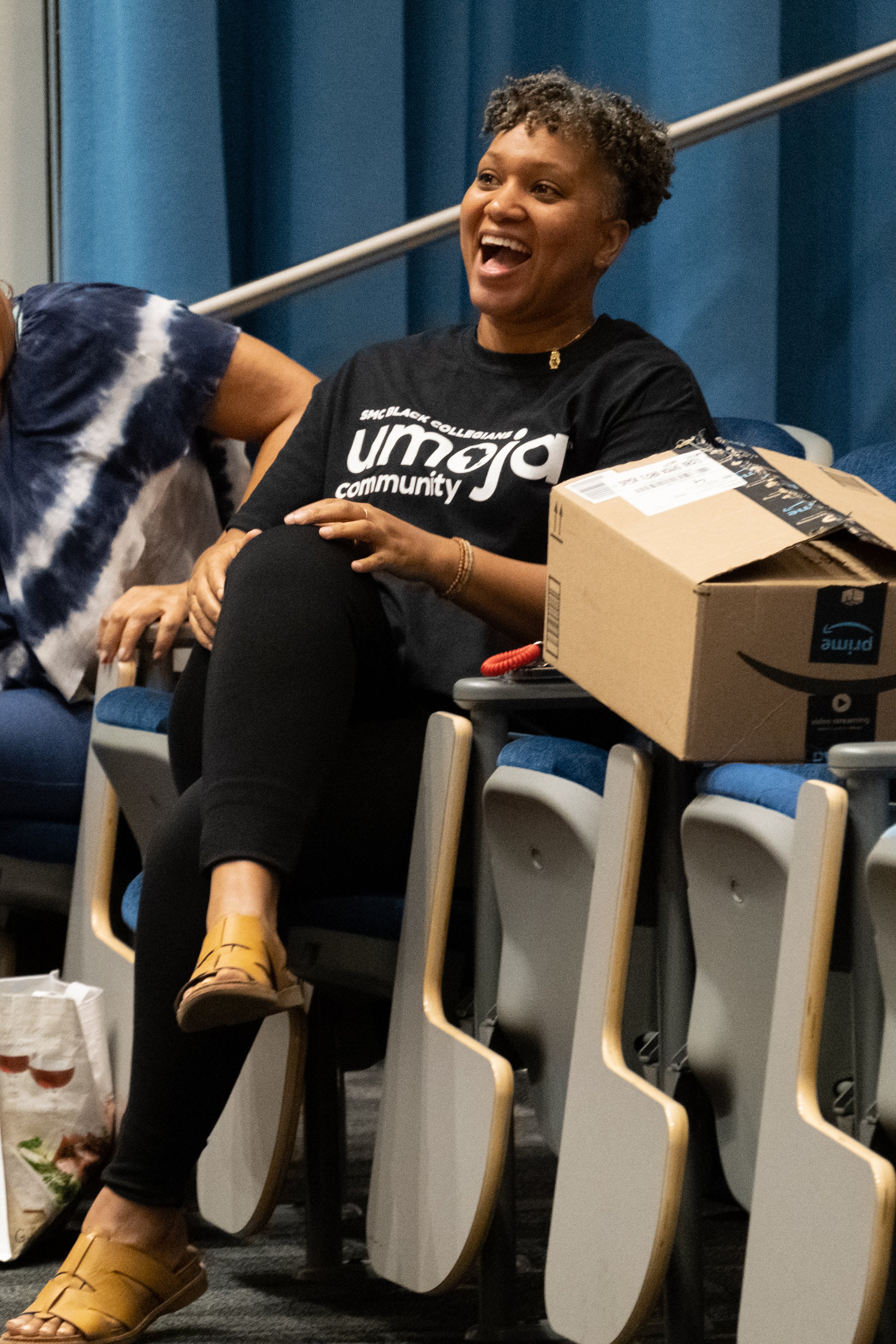
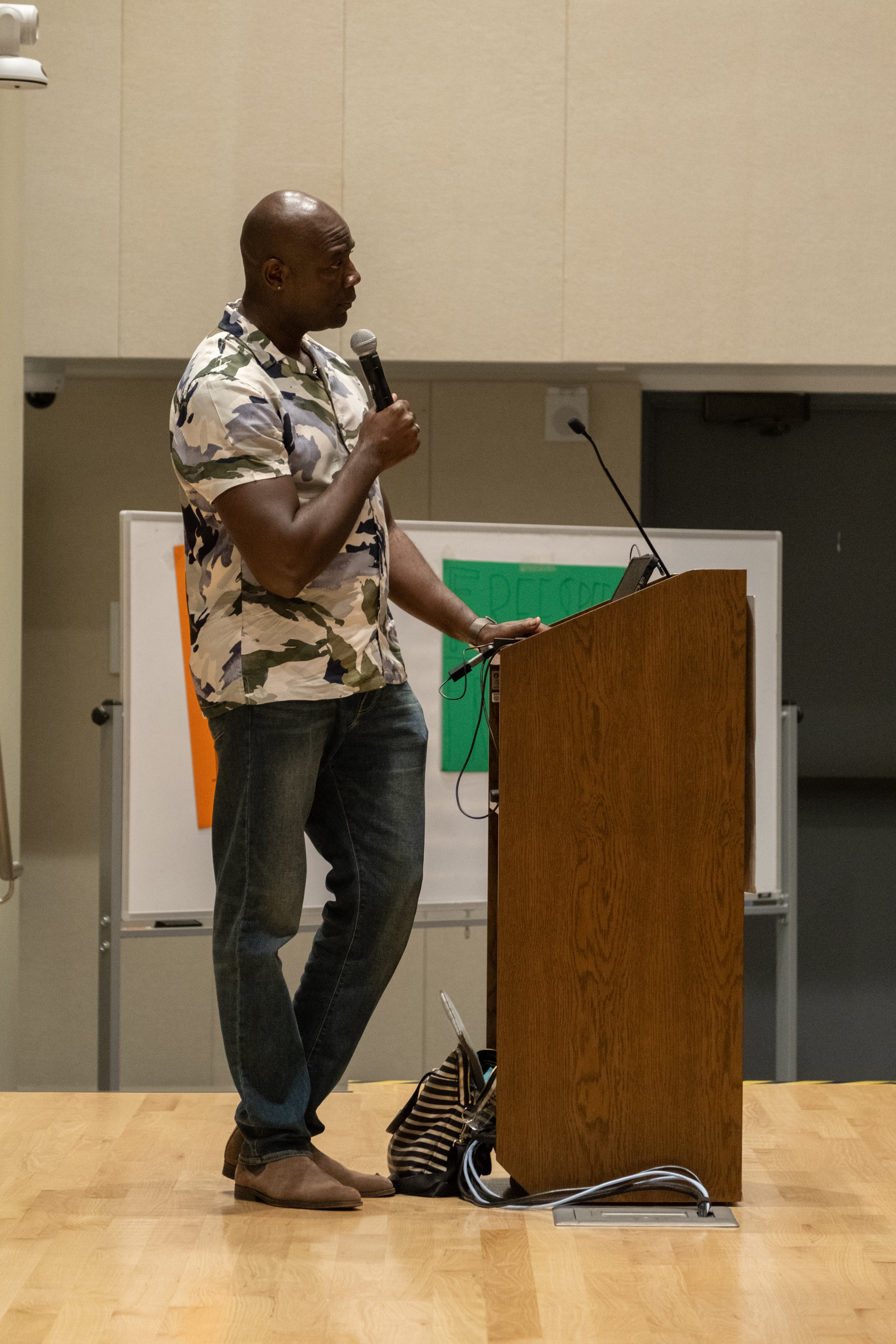
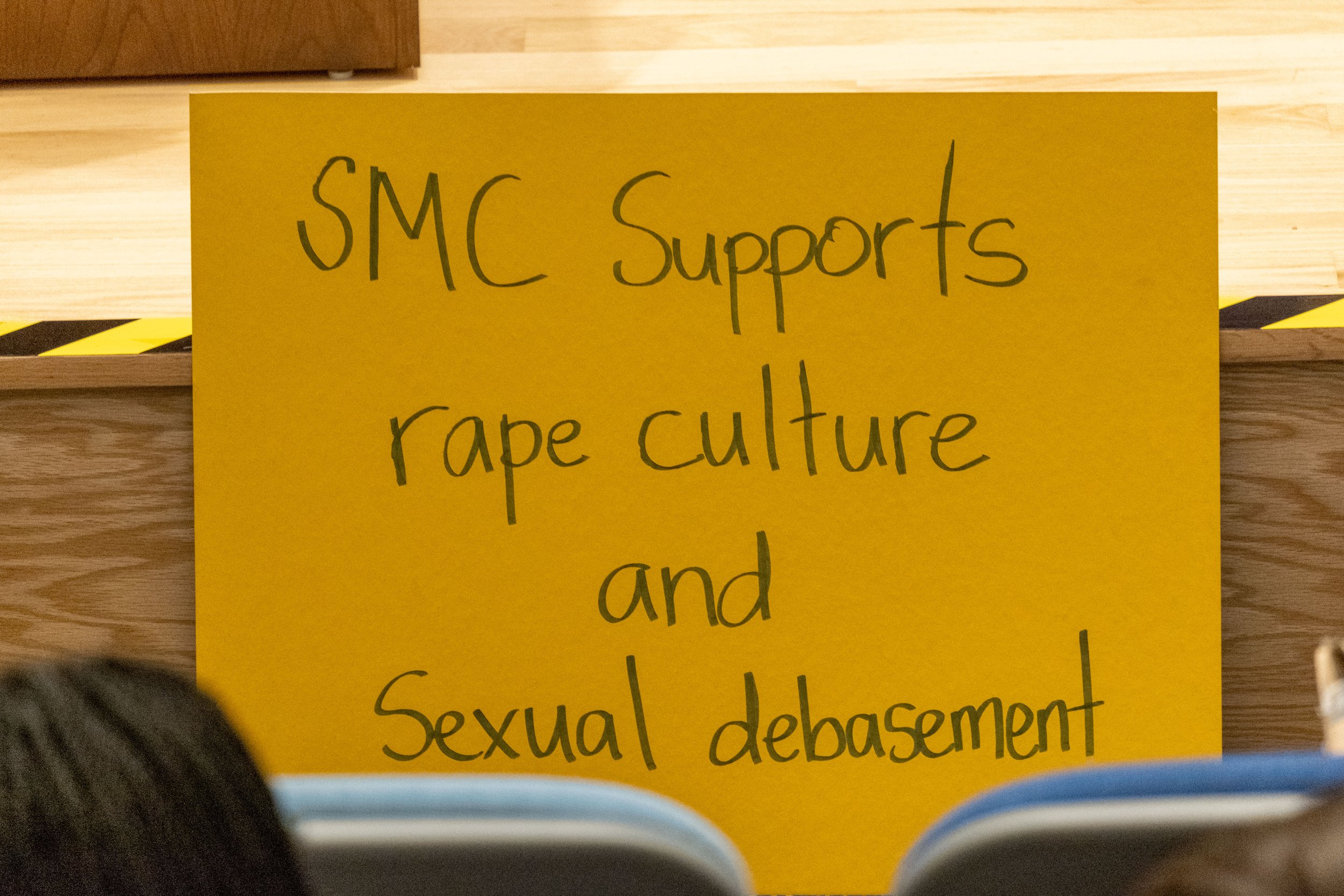
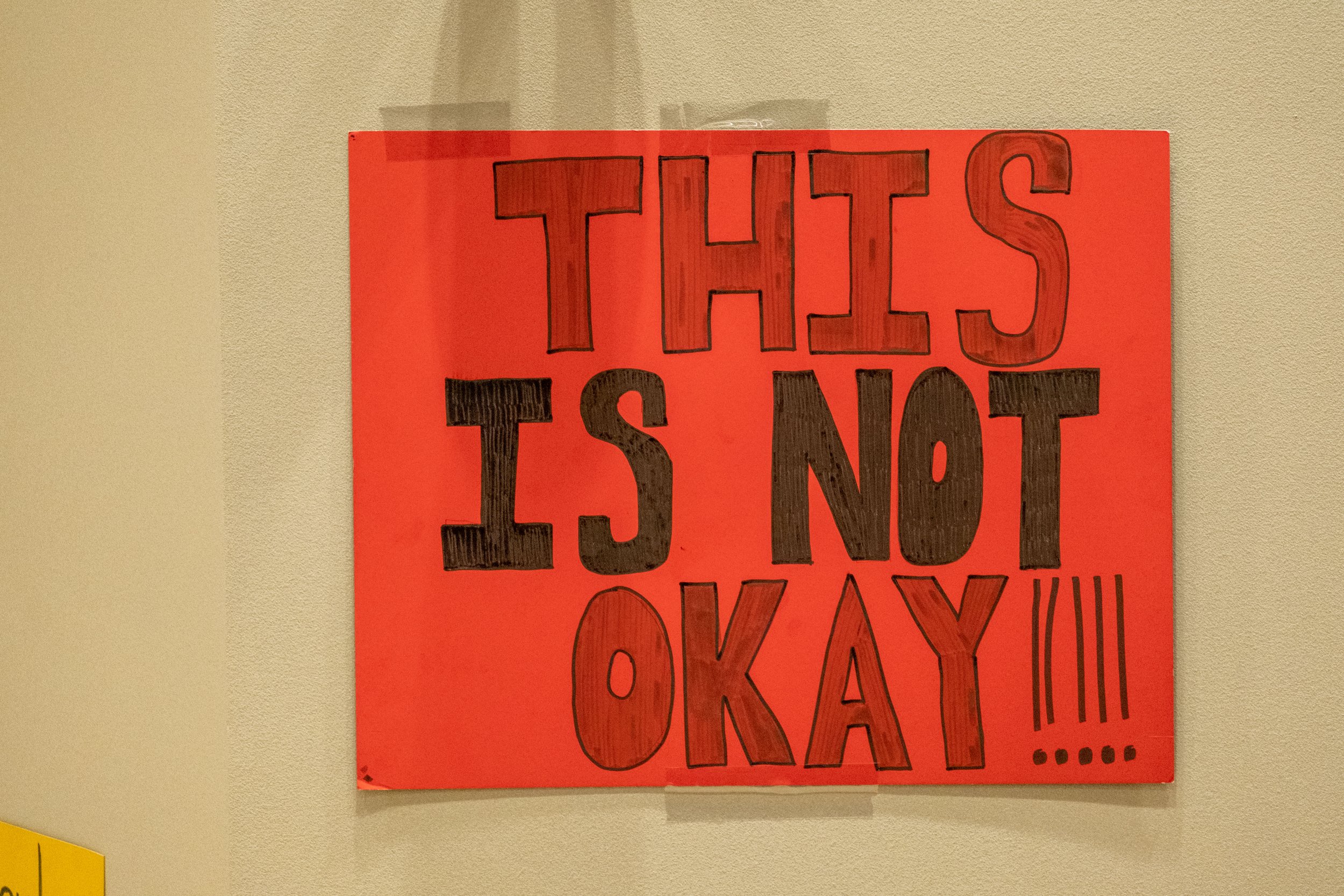
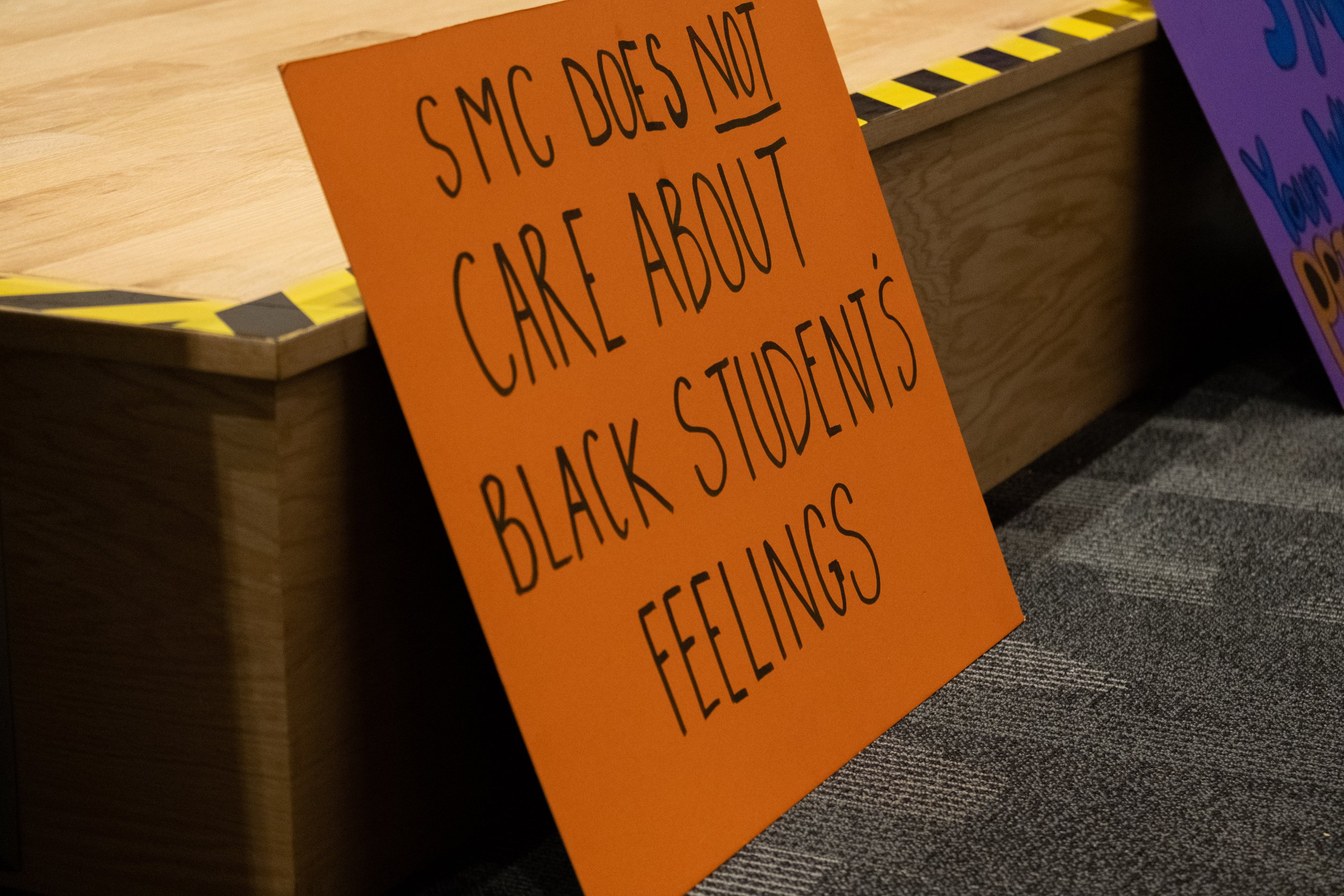
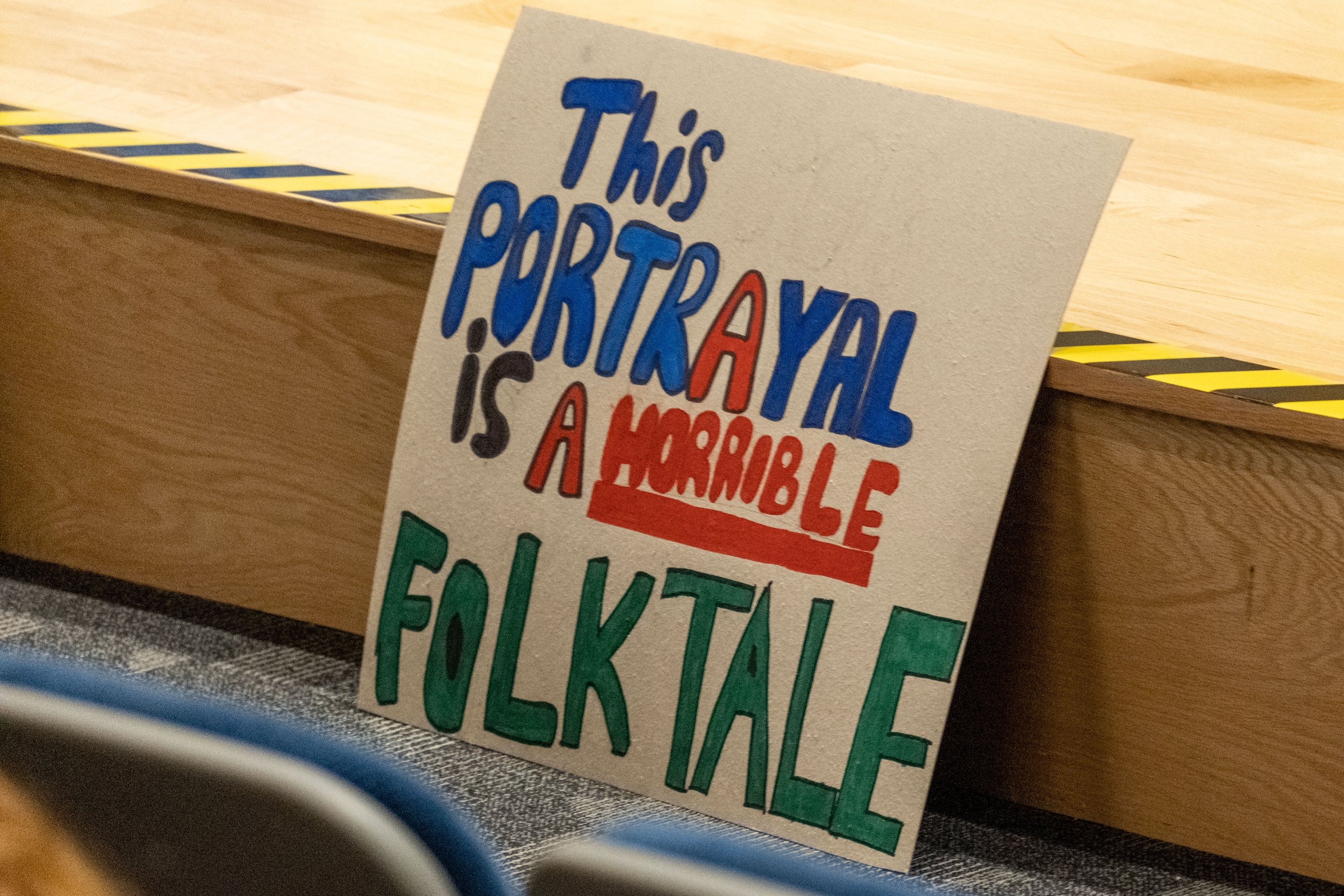
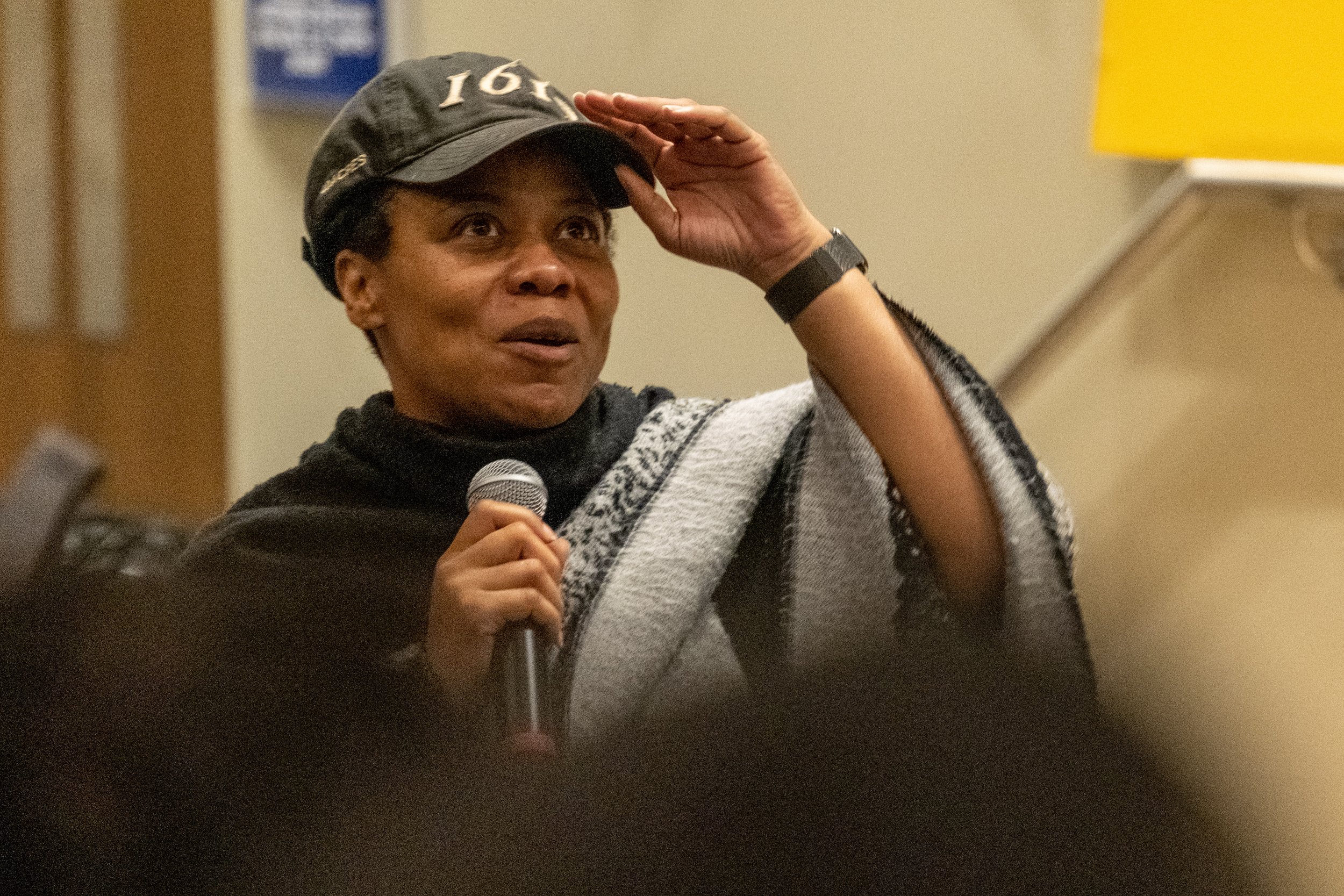
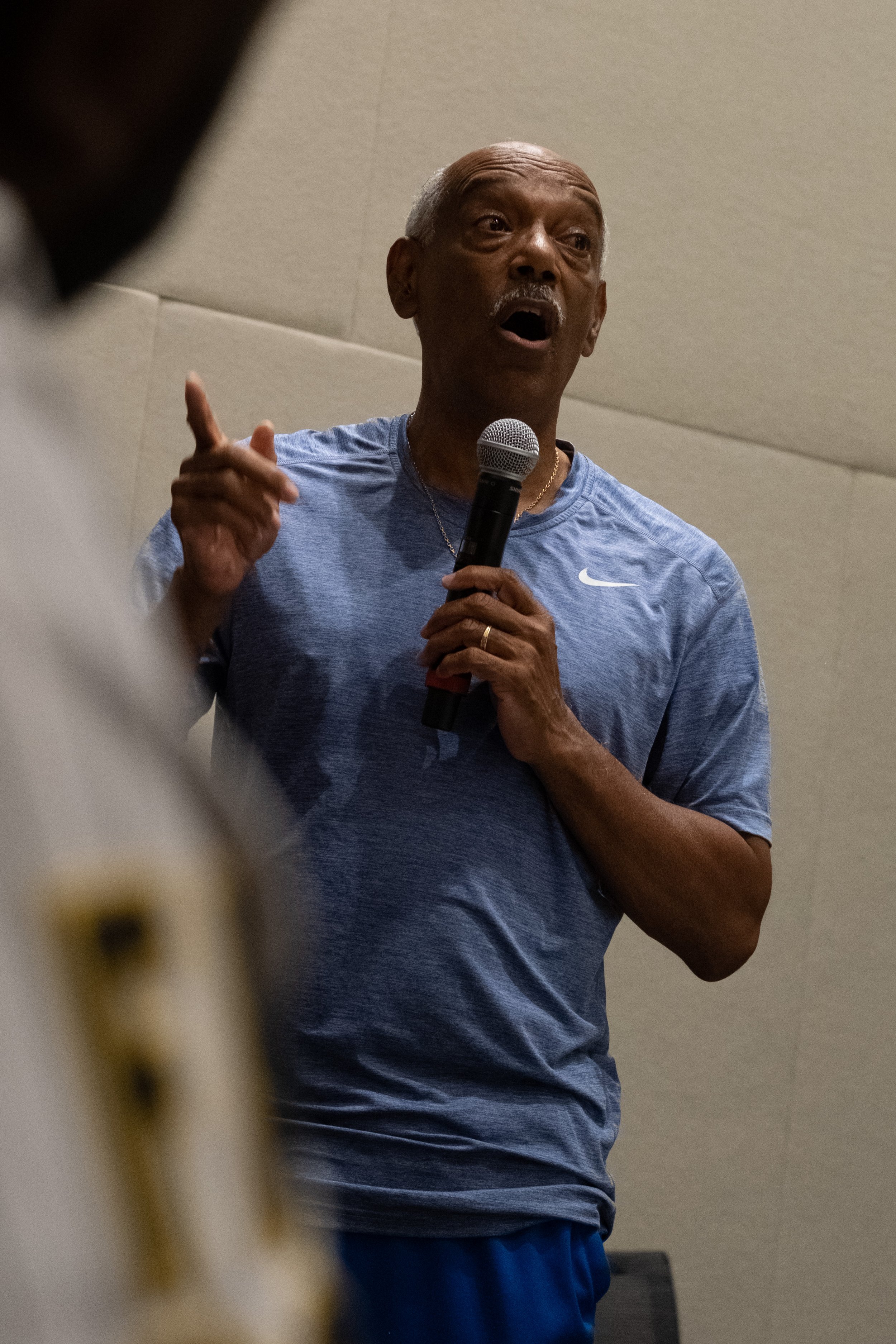
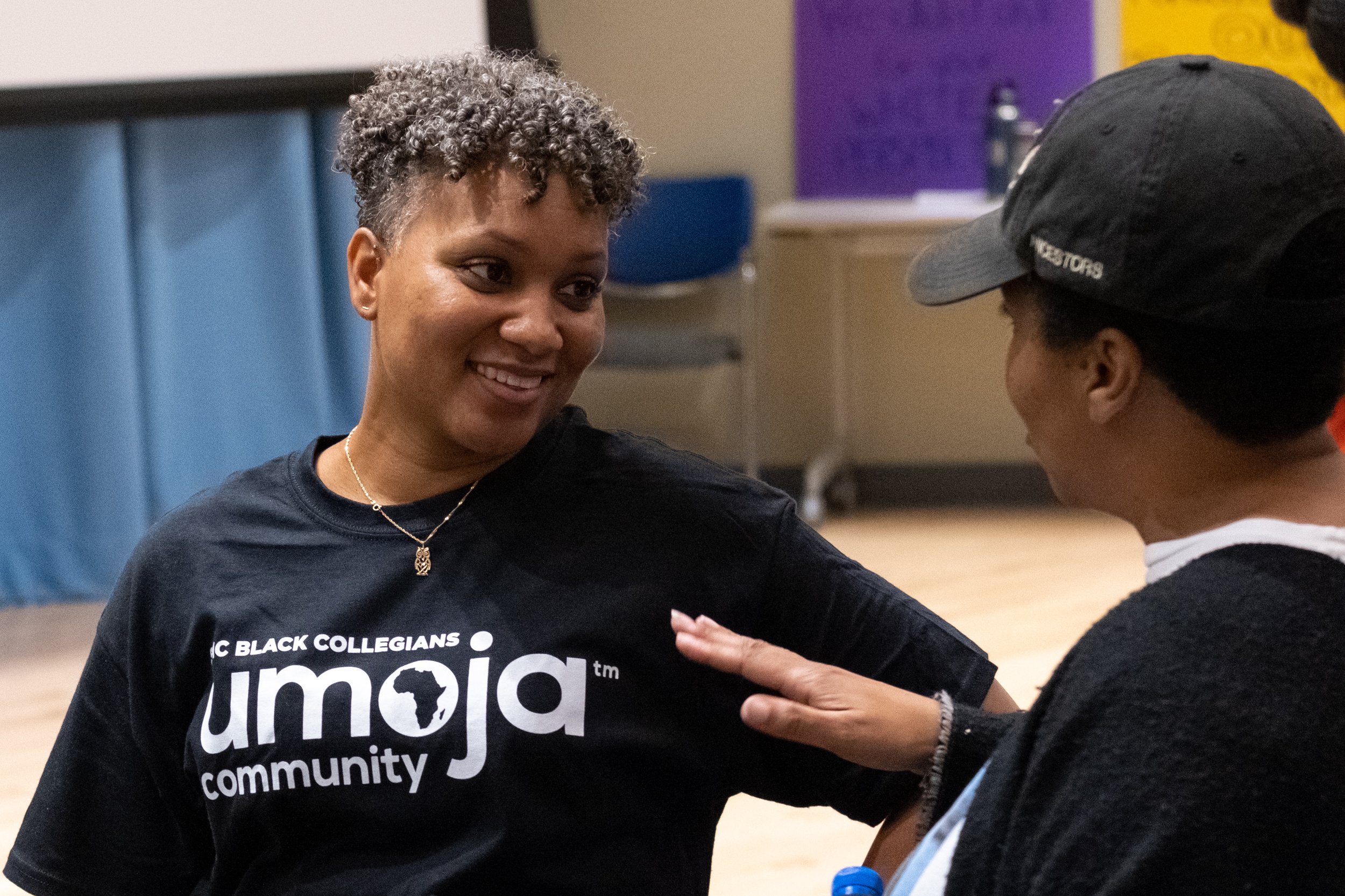
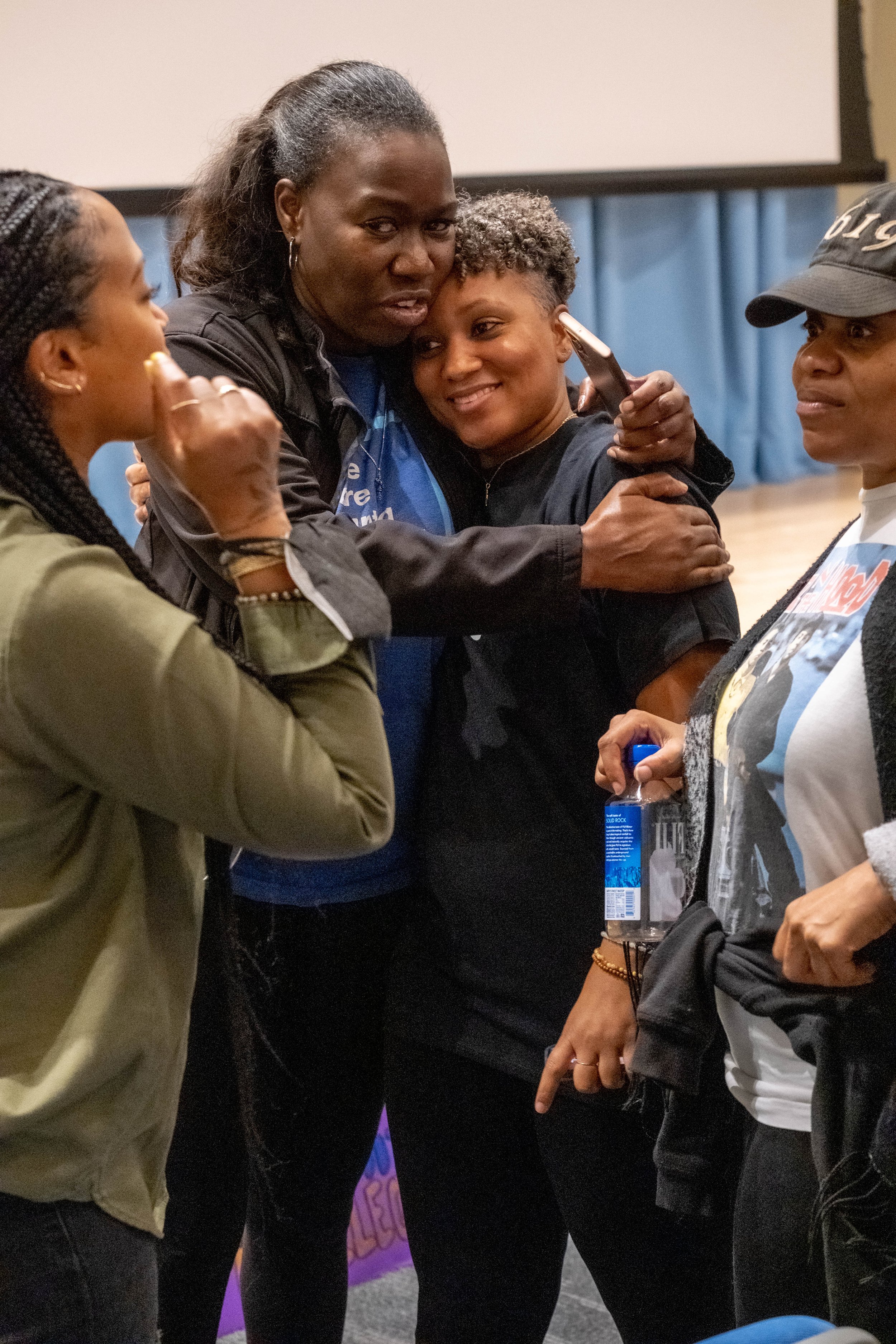
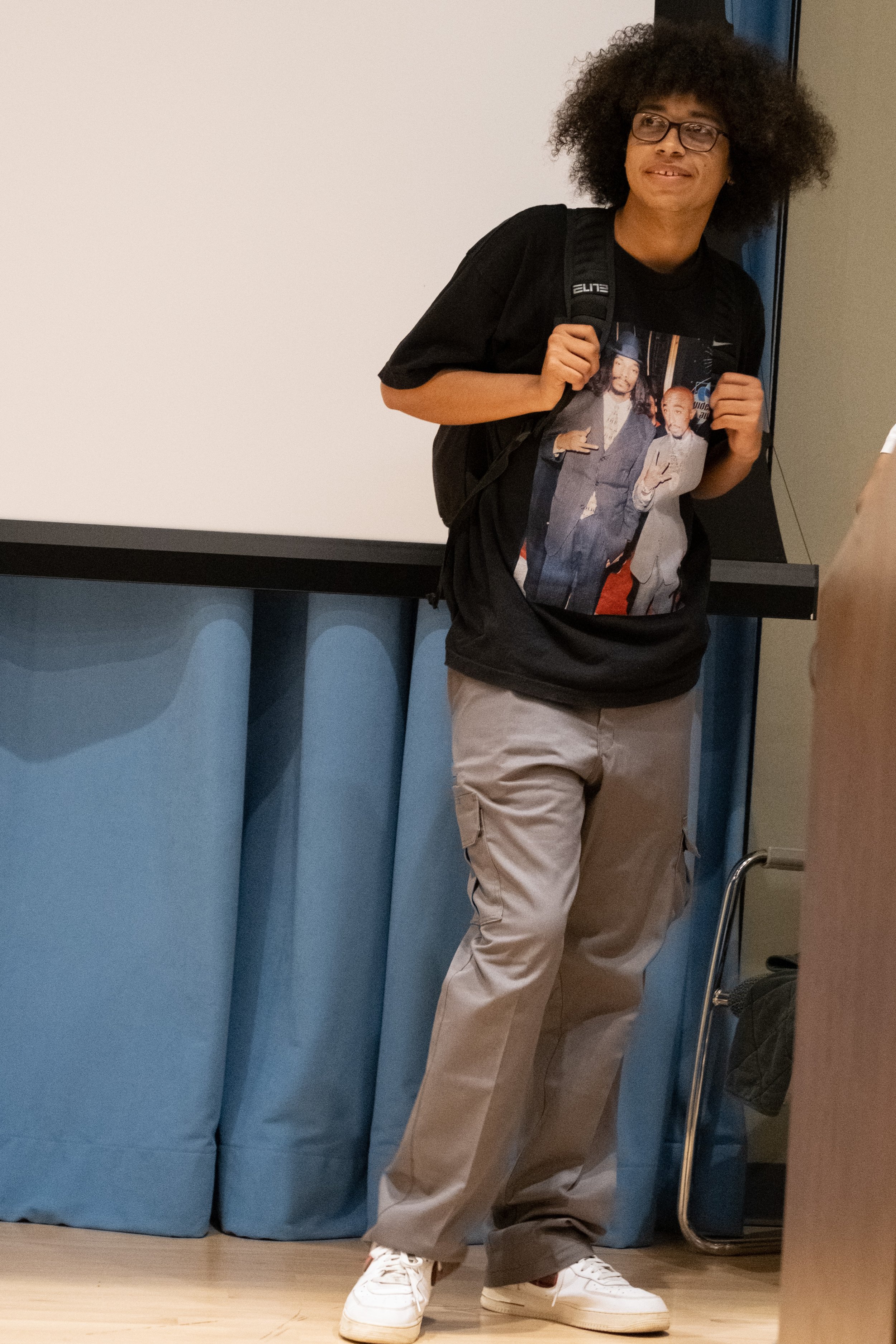
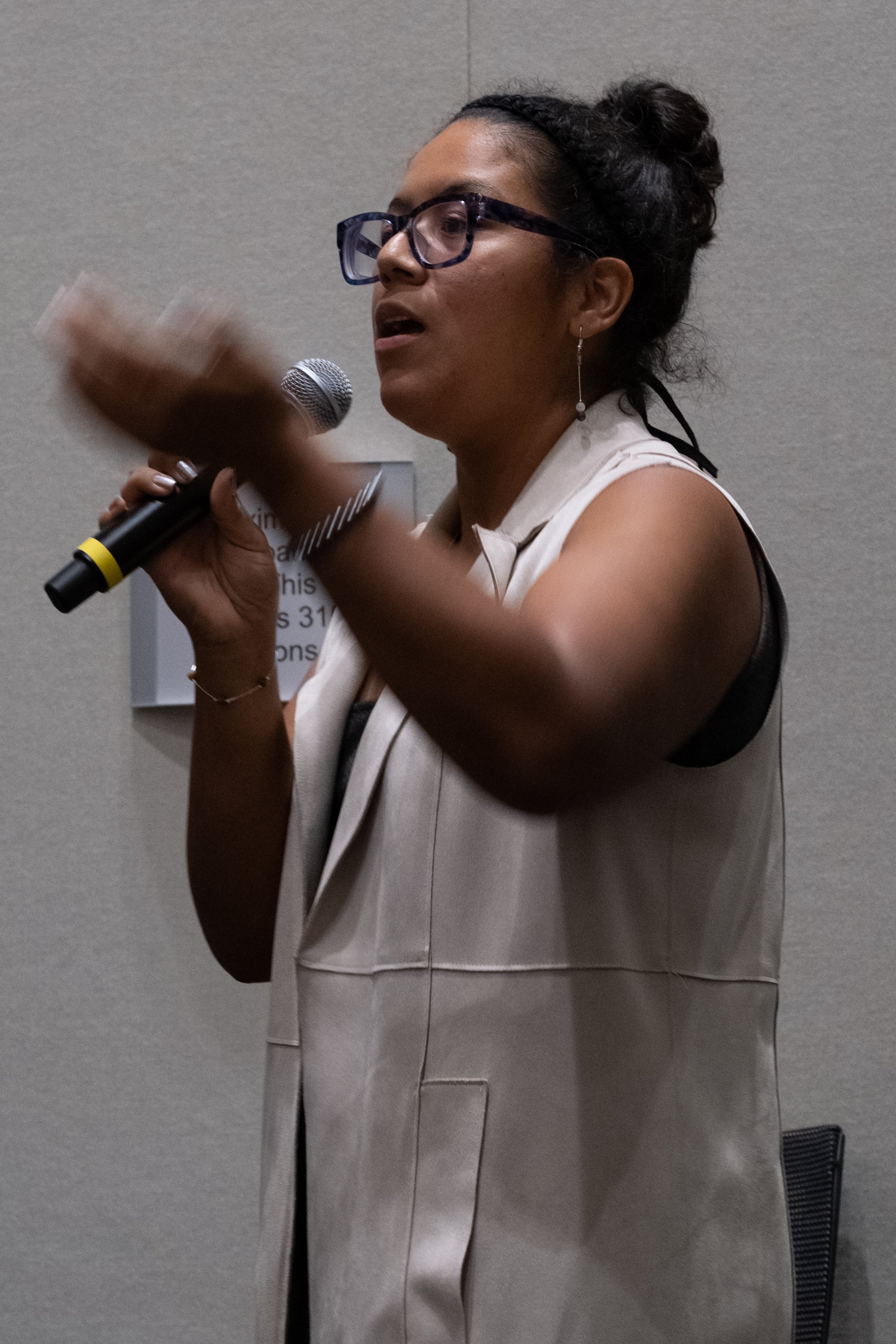
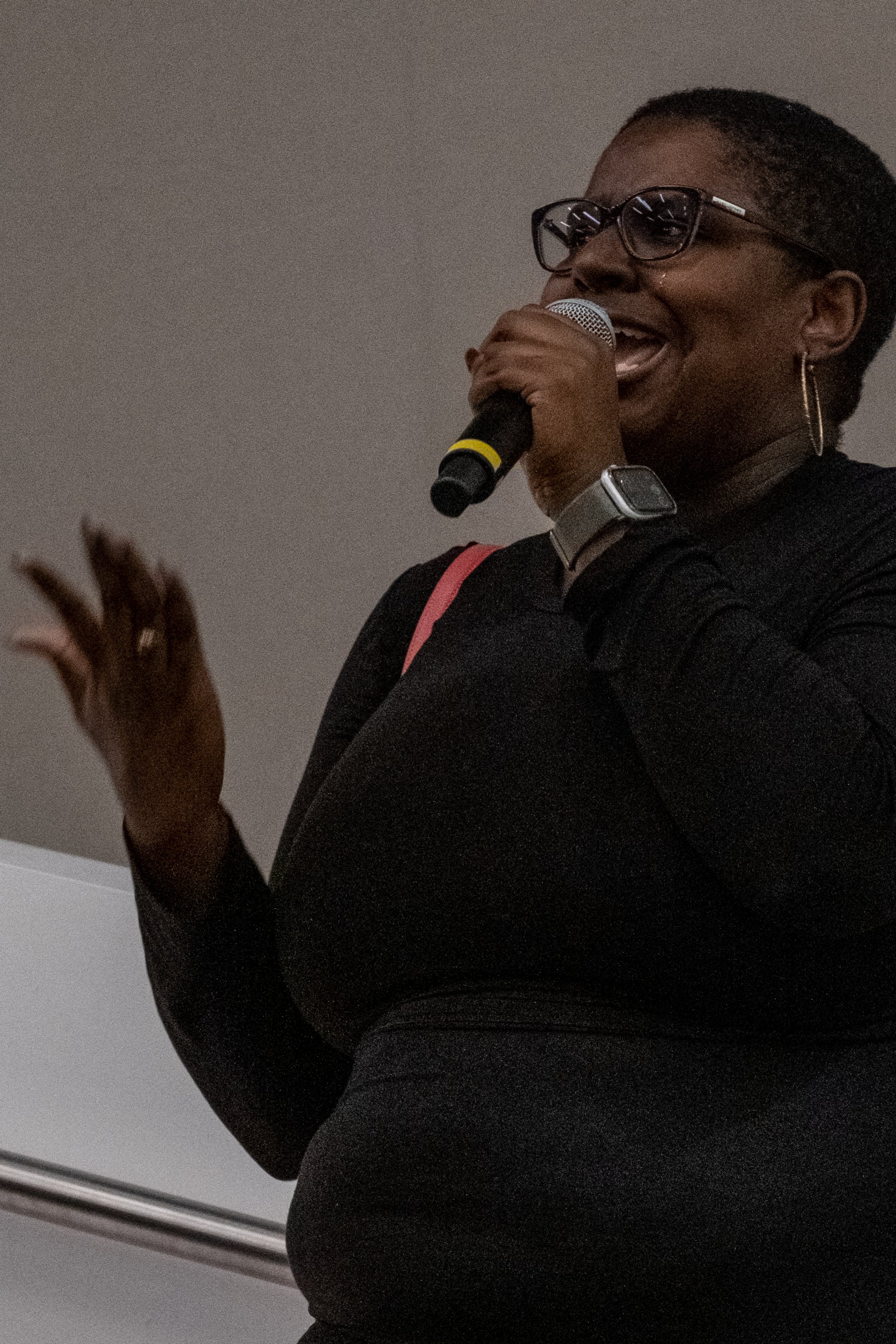
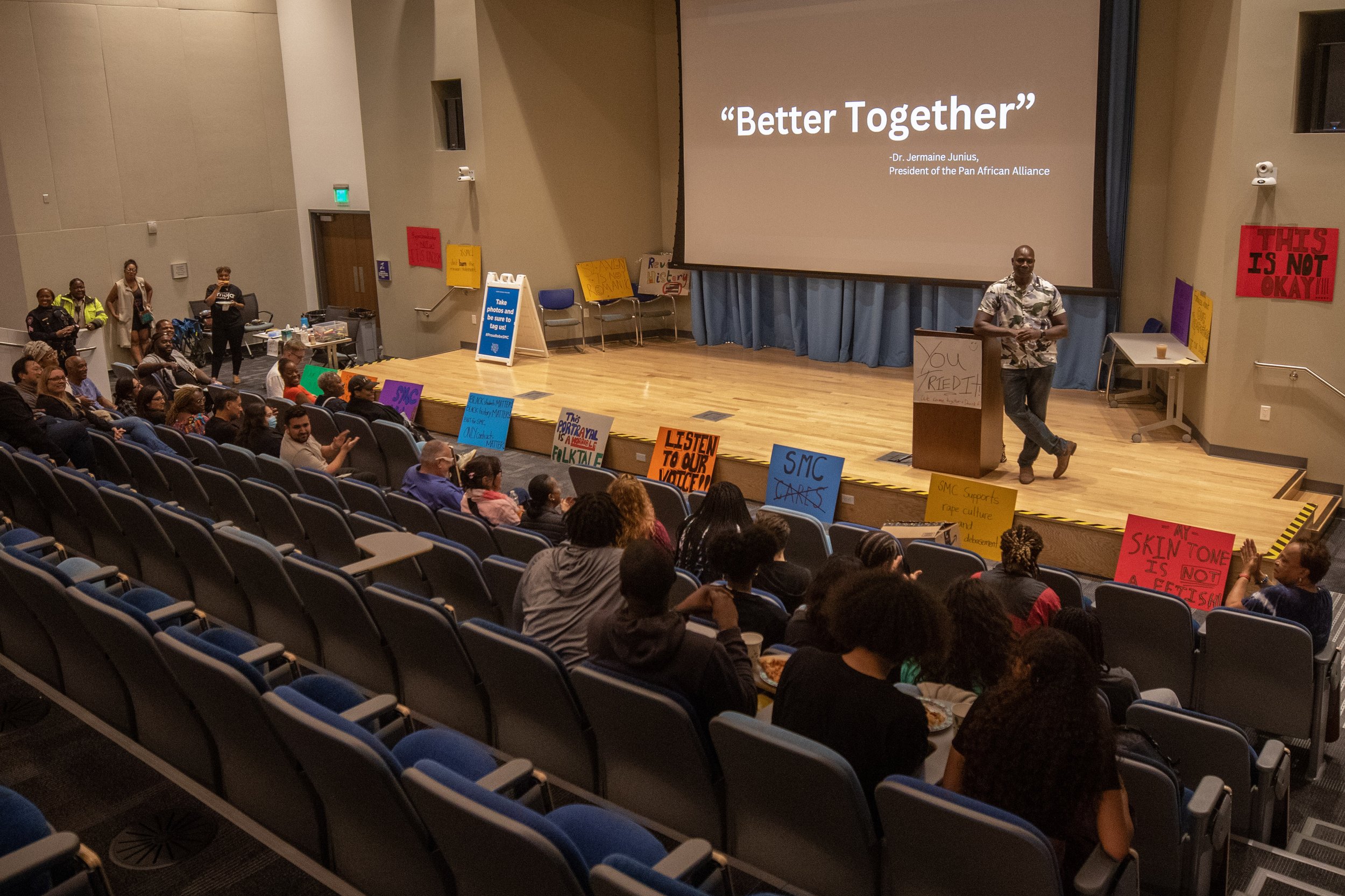
Students, faculty, and staff members react to the cancellation of the SMC production “By The River Rivanna.”
The cancellation of the Santa Monica College’s Theatre Arts Department production “By The River Rivanna” has impacted the college’s community since the decision was made last Thursday, October 19. The play, depicting a romantic relationship between an enslaved man and a male master in the 1850s, faced strong opposition from various SMC organizations ahead of its scheduled premiere on Friday, 20. Faculty, staff, and students have continued to share their perspectives on the situation in the days that followed.
Pan African Alliance & Black Collegians
Instead of the originally planned protests, the SMC Pan African Alliance and Black Collegians program organized a gathering to “provide a space to process all that has happened,” according to Black Collegian’s president Sherri Bradford. Signs reading statements such as “This portrayal is a horrible folktale” and “SMC does not care about Black students’ feelings” decorated the orientation hall where students, faculty, and staff members met on Friday evening.
President of the Pan African Alliance Dr. Jermaine Junius said, “I am ecstatic that this victory shows that we can support our Black students and that we’re here for them.” More than a dozen more community members addressed the audience, expressing anger about the play and gratitude to the leaders who fought to get it canceled. The absence of SMC’s president Dr. Katheryn Jeffery was also noted.
“We have a Black president that’s not here. That is very telling,” said Psychology Professor Dr. Nicole Woodard. “This has to go beyond a conversation, it has to keep forward with continual pervasive action from all sides.”
Bradford highlighted that “there’s still a lot of work to be done” at SMC to properly care for students and employees of color, and that it should be an ongoing action led by the college’s leadership. She commented that although the play served as a catalyst for a lot of pain, it has cemented the fact that there is “a community at SMC that is devoted to change.”
“There is a culture on this campus that still is not conducive to an environment where Black students can feel a sense of belonging in general,” Bradford said.
“My main problem with this whole situation is that students should not have been put in a place where the only way for them to get their degree was to play the role of a slave,” said student president of the Black Collegians program Cameron Terry. He affirmed that a couple of actors who were in the production asked him to “do something about it,” motivating Terry to organize the protests.
“My great great great great grandmother was born to enslaved persons. Her name was Minerva Simons. I’m not even sure she was born enslaved because she was considered property. Her derscendant is here at SMC having to experience the school she loves think that is entertainment,” said student Devan Cotton.
G. Bruce Smith
“Cancel culture is alive and well at Santa Monica College,” said “By the River Rivanna’s” writer Bruce Smith via a statement on his Facebook page. Smith has supported that there has been “an unprecedented and bizarre college administration campaign of bullying and harassment” in favor of the play’s cancellation, calling his positioning a “lonely battle against censorship of First Amendment rights.”
“I don’t care what the material is… it’s censorship, it’s squashing academic freedom,” said Smith. “I will not stop until the college understands that there are consequences to their actions. I will be seeking legal counsel.”
Smith explained he reached out to the Foundation for Individual Rights and Expression (FIRE), a nonprofit focused on “defending fundamental rights on college campuses,” according to their website. The organization sent a letter to Dr. Jeffery on Friday, October 20, stating that they were “deeply concerned by the decision” and that the college “must immediately permit the play to proceed as long as the students would like to do so.” When asked for comment days later, FIRE’s director of Campus Rights Advocacy Alex Morey did not confirm whether the organization was in possession of evidence of “undue administrative pressure” or the reports of harassment before they sent the letter to the SMC administration.
On the play’s content and his place as a white male writing about the African American experience, Smith commented that “if white people only wrote about white people, most of the literary canon would be gone.” He cited Kathryn Stockett’s “The Help” and Peter Farrelly’s “The Greenbook” as examples of media pertaining to African Americans that he believes were successfully produced by white authors, adding that “Should Anne Rice write about vampires? She’s not a vampire, as far as we know.”
The playwright added that he “wonders if homophobia” played a role in the advocacy for the play’s cancellation, commenting on the same-sex relationship portrayed between the slave and plantation owner characters. On the accuracy of that relationship, Smith said “you know there were white gay men… gay men who were enslaved, we didn’t invent homosexuality overnight,” adding that “these so-called critics don’t care about the play’s sensitivity.”
Perviz Sawoski
The play’s director and chair of the SMC’s Theatre Arts department said the show was “simple and thoughtfully researched and performed,” and that there was “no disrespect whatsoever intended to any community.” She explained that the cancellation occurred due to the “protests and possibility of violence” and the unprecedented “level of hatred and anger in the community.”
Sawoski commented that the cancellation will not have negative repercussions on the students’ academic standing since they all “have done excellent work and deserve a good grade.” On appointing Smith as the first ever artist-in-residence of the Theatre Arts department, she said that there was no process for it nor other artists considered for the position. Smith and Sawoski have been long-time collaborators. One of their previous SMC productions is 2012’s “Heart Mountain,” a play written by Smith while he served as SMC’s public information officer about the Japanese-American experience in internment camps.
Adrian Thomas
One of SMC’s lead theater technicians and playwright Adrian Thomas shared his perspective on the play. “As a Black man in America and someone who has been fighting for LGBTQAI rights in LA for decades, I stand for fair and truthful depictions of my culture and heritage, and this work is extremely uninformed and ignorant,” he said. “My years of experience in the real world of professional theater have informed me that this play would never stand in the world of today without major protest.”
Thomas added that he was not surprised by the events because he has seen problems with the depiction of African Americans in the Theatre department since 2008, when according to him, a white actress cast to play the lead in the adaptation of the musical “Aida” was put on blackface makeup. He said that faculty members such as theatre professor Terrin Adair-Lynch protested the casting, but the play moved forward after being approved by Sawoski. “I was appalled but felt trapped and like I could not speak up. I was new to the campus and needed the job.”
Joseph McGill
Smith cited the work of Joseph McGill as a central inspiration for the play and said that Sawoski approached him with the idea for the production after visiting Magnolia Plantation in South Carolina. The site is one of the plantations included in McGill’s “The Slave Dwelling Project,” where the author and historian explores and discusses the legacy of slavery and plantation sites in America.
McGill said that he doesn’t necessarily have a problem with white people writing stories about the African American experience as long as they are accurate and factual. He affirmed that he was never consulted or approached by the play’s creators about its content and that it’s “a good thing the protests are happening.”
“White people often try to make themselves feel more comfortable about slavery by minimizing and romanticizing that period in time,” McGill said. “People come to sites such as plantations to project these ideas, looking for the nice big house and wanting to have weddings while totally disregarding the hardships and history that happened there.”
Student Cast Members
One of the student actors in the play, Tia Jiji, said that she initially did not want to be part of the play “out of respect for my African parents,” but decided to join after being asked by Sawoski directly. “While I understand those who are saying that this is art and we’re only trying to tell a story, I also understand that as Black Americans, we deal with generational trauma and it’s painful to watch a play like this.”
“After reading the script for the first time, I had a lot of thoughts. I was a bit shocked at first but as I discussed it with different people of all ages and races, I came to the conclusion that people are complicated and so are characters and stories,” said Ava Kitt, another cast member. Kitt added that she was aware that some of her castmates were hesitant about the play’s content but was “confused why they didn’t bring up all their concerns” to the director or decided to drop out of the play. She added that she doesn’t “hold anything against” the students who voted to cancel the production.
Several attempts to interview the student actors about the production’s cancellation were made. After two weeks of conversations, they collectively decided to not give an interview due to their “mixed emotions” and fear of impacting their “careers as actors at SMC.”
SMC History & Ethnic Studies Department
The History & Ethnic Studies department at SMC, one of the 14 organizations that supported the production’s cancellation, issued a statement affirming that “the play’s depiction of slavery in antebellum America lacks grounding in evidence, scholarship, and reality.” They further cited the production’s portrayal of sexual violence, a “colonialist gaze on Black bodies and desire,” the use of racialized stereotypes and “plantation myths,” and the impact on members of SMC’s Black community as some of the reasons for their advocacy.
“If we, at Santa Monica College, are building an educational institution that is rooted in equity, inclusion, and community, we must do better,” the statement read.
NOTE: This article was updated on November 1, 2023, at 9:05 a.m. (Pacific Standard Time) to correct the name of the non-profit Foundation for Individual Rights and Expression (FIRE). The article originally referred to the organization as Foundation for Individuals Rights in Education.


